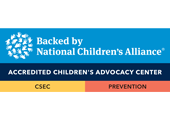When “remote” isn’t safe for children
October 19, 2020
Even before COVID-19 turned our lives upside down, many, if not most, of us were suffering from TMI – Too Much Information. 24/7 cable news networks, social media, emails, YouTube, and yes even this newsletter – it’s impossible to process it all. And now, in a society compelled to connect online much more frequently, TMI has only been exacerbated.
Yet, there is still vital information worth our focus.
Here’s one: children and teens are online more than ever, especially with in-school-instruction being severely curtailed and the rise of remote-learning. Research has shown that 1 in 5 children will experience unwanted sexual content/solicitation online. Even prior to the pandemic, The Internet Crimes Against Children Task Force reported these numbers were on the rise. Immediately after restrictions and shelter-in-place advisories were declared in March, the FBI issued a national warning that children being pushed towards remote learning and more unrestricted time on the internet carried the potential for more online enticement and exploitation.
Wait. Let’s take a step back. What is online enticement/exploitation?
Here is how the National Center for Missing and Exploited Children (NCMEC) defines it:
Online Enticement involves an individual communicating with someone believed to be a child via the internet with the intent to commit a sexual offense or abduction. This is a broad category of online exploitation and includes sextortion, in which a child is being groomed to take sexually explicit images and/or ultimately meet face-to-face with someone for sexual purposes, or to engage in a sexual conversation online or, in some instances, to sell/trade the child’s sexual images.”
Consider this: with the national shut-down, not only did it lead our youth to spending more time online, online predators now have more hidden and direct access to our children.
Locally, we have seen a surge in reports for sexual exploitation cases on the Cape & Islands, some of which leads to the commercial sexual exploitation of children, what we in child advocacy profession refer to as CSEC. Since July 1st we have received more than half the number of our total referrals from the previous year. If this trend continues, we could see up to a 120% increase in sexual exploitation referrals, a trend being seen elsewhere across the country.
The good news: parents and caregivers can make a huge difference in reducing these numbers. How? First: get involved! It may seem uncomfortable and overwhelming at first but what’s happening in your child’s online world is important. There are courses parents and caregivers can enroll in offered by the organization National Online Safety that can assist you in understanding what you need to know.
Second, talk regularly with your children about body safety and how that extends into their online activities. Creating an environment of trust and open communication about topics which may seem difficult will make it more likely your child will talk to you if something happens.
And please don’t forget to use the tips and resources found here.
Lastly, be on the lookout for our upcoming campaign to counter this troubling digital development.






